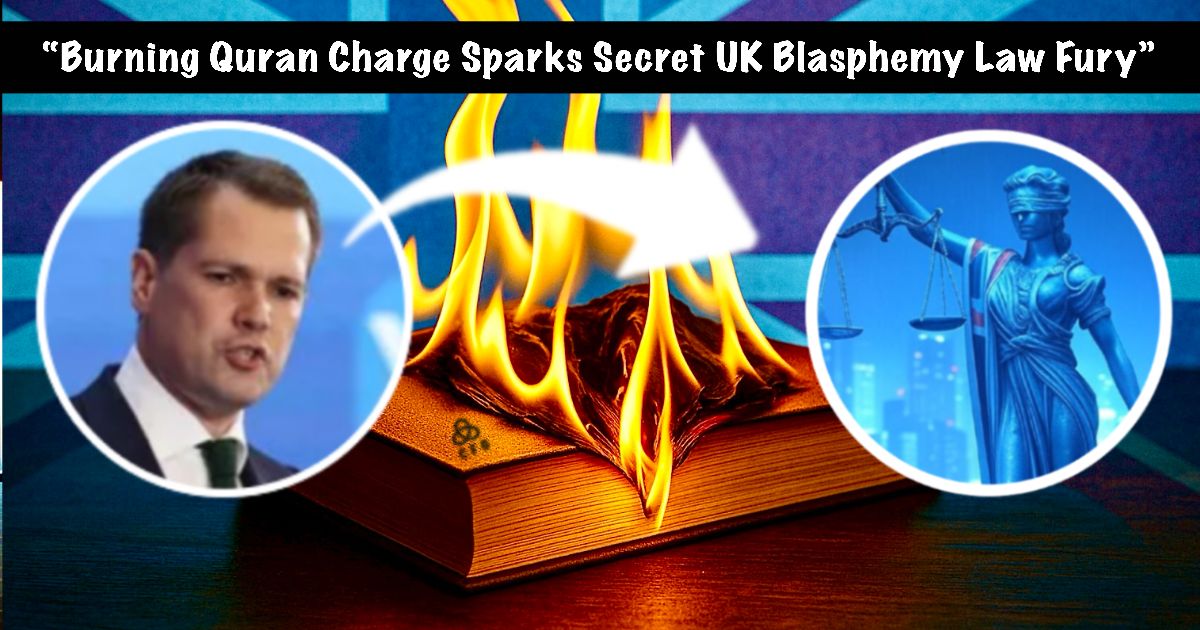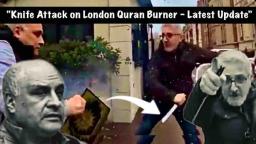CPS U-turns on ‘Blasphemy’ Charge in Quran Burning Case
Quran-burning suspect’s charge rewritten after backlash over ‘secret blasphemy law’—CPS retreats amid uproar, legal doubts, and political pressure.
A 50-year-old man who allegedly set fire to a copy of the Quran outside the Turkish Consulate in West London has had a key charge amended by the CPS )Crown Prosecution Service), following widespread legali scrutiny and formal objections raised by senior political and civil figures.
Hamit Coskun, of Derby, was originally charged in February with racially aggravated harassment, with the charge curiously directed at the institution of Islam itself, rather than any individual or group of people. That charge, rare in both construction and precedent, prompted immediate concern from multiple legal commentators, (including myself) campaign groups and Members of Parliament, who warned it bore the hallmarks of a reintroduction of the UK's long-defunct blasphemy laws.
Two days after the alleged incident, in which Mr Coskun was said to have ignited a Quran while shouting anti-Islamic abuse, the CPS announced the charge, framed specifically as harassment of the religious institution of Islam. However, the charge quickly came under fire. The National Secular Society publicly questioned the legality of prosecuting an act that targeted no individual or definable group, while shadow Secretary of State for Justice Robert Jenrick wrote to the Director of Public Prosecutions warning that such a legal position was unsustainable and legally questionable under existing statute.
Under English law, there is no recognised legal category for the harassment of a religion itself or a non-human institution. The relevant legislation—primarily section 5 of the Public Order Act 1986, as amended by the Crime and Disorder Act 1998—criminalises threatening, abusive, or insulting words or behaviour that are likely to cause harassment, alarm or distress to a person. When aggravated by religious or racial hostility under section 31, the offence becomes indictable.
But crucially, the victim must be a person or persons capable of perceiving or being impacted by the conduct in question. Institutions, belief systems, or abstract entities—such as the concept of "Islam"—cannot, in law, suffer harassment. This renders the original CPS charge not just legally fragile but non-justiciable: it had no identifiable legal locus or victim.
In 2008, the UK Parliament formally abolished the centuries-old common law offences of blasphemy and blasphemous libel via section 79 of the Criminal Justice and Immigration Act. This statutory repeal was a clear legislative signal that the criminal justice system would no longer entertain prosecutions based on the offence of religious insult per se. The law instead shifted focus toward protecting individuals and communities from harm or hostility, rather than shielding ideas or institutions from criticism, however offensive.
In a development confirmed late last week, the CPS has now amended the charge against Mr Coskun, dropping the previous formulation which referred to causing "alarm, harassment or distress to the institution of Islam". A CPS spokesperson confirmed that the decision was taken as part of a routine ongoing case review, and denied it was a direct response to Mr Jenrick’s intervention. Nonetheless, the timing of the reversal aligned closely with his public statement and letter to the prosecuting authority.
Mr Jenrick, posting on social media platform X (formerly Twitter), welcomed the CPS's decision to revise the charge, stating that the original wording was "an invention that had no basis in law", while also expressing continued concern over the updated formulation of the case.
Mr Coskun, who denies all charges against him, is now accused of racially aggravated harassment on the grounds that his actions were allegedly motivated by hostility towards followers of Islam. It is claimed that during the incident, he held the burning Quran aloft and shouted phrases including "F*** Islam", "Islam is a religion of terrorism", and "Quran is burning".
The CPS stated that the offence in question—causing harassment, alarm or distress contrary to section 5 of the Public Order Act 1986—is prosecutable when aggravated by racial or religious hostility, and does not require the targeting of a religious institution, but rather an identifiable group or protected characteristic. A CPS source added that while blasphemy laws were abolished in England and Wales in 2006, protections remain in place under public order legislation where speech or behaviour crosses the legal threshold of incitement or harassment based on race or religion.
It remains the prosecution's case that Mr Coskun's conduct amounted to a criminal offence. His next court appearance is expected to focus on the revised charge, which will now reflect an alleged offence against persons defined by their religious identity, not against a belief system or institution per se.
This case continues to raise complex questions over the balance between protected freedom of expression and the scope of existing hate crime legislation. Legal observers are watching the proceedings closely, particularly as the initial charging decision appears to have tested the boundaries of current criminal law in England and Wales.
Well, that’s all for now. But until our next article, please stay tuned, stay informed, but most of all stay safe, and I’ll see you then.




